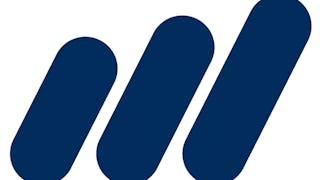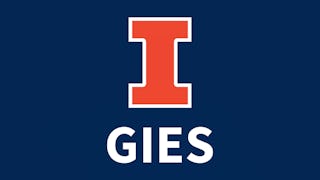In Debt, we take on one of the most challenging financial questions that remains unresolved: How much to borrow? We start by demonstrating why using debt has always been and continues to be a great temptation, particularly when borrowing costs are historically low. We identify conditions for selecting the optimal amount of debt for a corporation looking to maximize its value. You’ll become fluent in related concepts like norms and benchmarks. You will explore these and other factors that influence debt for individuals and for public sector organizations -including governments, who are the largest consumers of debt. Like pollution, debt creates systemic risks even for the people and organizations that don’t create it. This course discusses the imperative of limiting and reducing debt and the costs to all of us if we don’t. We build on case based learning giving you opportunities to interpret, uncover and acquire financial information that is often hidden or missing. We also summarize important threads from previous courses to give you a deep and cohesive understanding of when debt works for you and when it becomes your worst enemy.

Enjoy unlimited growth with a year of Coursera Plus for $199 (regularly $399). Save now.

Finance for Everyone: Debt
This course is part of Finance for Everyone Specialization

Instructor: Arshad Ahmad
18,315 already enrolled
Included with
(147 reviews)
Skills you'll gain
Details to know

Add to your LinkedIn profile
See how employees at top companies are mastering in-demand skills

Build your subject-matter expertise
- Learn new concepts from industry experts
- Gain a foundational understanding of a subject or tool
- Develop job-relevant skills with hands-on projects
- Earn a shareable career certificate

There are 4 modules in this course
Welcome! This first week will introduce you to a critical question for our time: how much debt is too much debt? We start by demonstrating why using debt has always been and continues to be a great temptation, particularly when borrowing costs are historically low. Then we’ll delve into Personal Debt and how building your financial literacy as well as tapping into your own motivations can help you manage your debt level, instead of it managing you. You will make connections between Debt and concepts in the prior three courses of this Specialization, and start examining what area of debt from your experiences that you would like to address as part of this course’s final assignment.
What's included
5 videos5 readings4 assignments3 discussion prompts
This week we will look at Corporate Debt and how this type of debt has significant advantages over equity under certain conditions. Taking a critical yet realistic lense, we’ll explore how debt favours and benefit firms who use it as financial leverage aimed at increasing a firm’s value, while impressing an understanding of why this is an advantage only during times of growth. We’ll also tap into each other’s thoughts on how this type of debt could influence our own investing decisions
What's included
2 videos2 readings4 assignments1 discussion prompt
This week we’ll move beyond the personal and corporate to the bigger picture of Government Debt. We’ll collectively understand why a measure of debt is often a requirement to grow national wealth. But, we’ll also discuss how this ‘measure’ of debt has become a ‘monolith’ of debt in many instances around the globe. The key aspect that we’ll work together to uncover is how this impacts you and the people and places surrounding you, and consider how we might plan and react to finding ourselves at an economic turning point in our history. This week will also be the launch of our peer review activity around your debt case study.
What's included
2 videos3 assignments1 peer review1 discussion prompt
Week 4 is the time to synthesize all that we have learned about debt - from our personal experiences, the state of corporations as well as the current level of government debt, and scrutinize and address it in a way that will increase your debt literacy. You will also reexamine your debt case study and share your biggest takeaways from the course, and look ahead to F4E: Capstone!
What's included
1 video1 assignment1 discussion prompt
Earn a career certificate
Add this credential to your LinkedIn profile, resume, or CV. Share it on social media and in your performance review.
Instructor

Offered by
Explore more from Finance
 Status: Free Trial
Status: Free TrialSoFi
 Status: Free Trial
Status: Free TrialCorporate Finance Institute
 Status: Free Trial
Status: Free TrialUniversity of Illinois Urbana-Champaign
 Status: Free Trial
Status: Free TrialMcMaster University
Why people choose Coursera for their career




Learner reviews
147 reviews
- 5 stars
82.31%
- 4 stars
13.60%
- 3 stars
2.72%
- 2 stars
0.68%
- 1 star
0.68%
Showing 3 of 147
Reviewed on Oct 1, 2020
Very clear concepts including videos. Interesting everything
Reviewed on Mar 4, 2025
Does not get into details about debt. Gives a high level view of personal, corporate, and Sovereign debt.
Reviewed on Oct 8, 2020
This course helped alot what is debt and how it helps us.
Frequently asked questions
By the end of this course, you should be able to:
1. Explain ways in which debt can be useful or detrimental to the individual, the company, and the country.
2. Relate important financial concepts and issues to experiences in your daily life or the real world.
3. Perform financial calculations with accuracy.
4. Build confidence in your ability to manage debt.
5. Engage in research in order to increase your knowledge of particular financial issues/scenarios.
6. Engage with news, issues, and communities that matters to you, inclusive of concepts of finance and debt.
7. Assess finance issues (ex. the debt position of a given entity) with confidence.
8. Analyze how financial concepts are applied by organizations.
The course is structured to be 4 weeks in length.
This course will be offered every month.
More questions
Financial aid available,
¹ Some assignments in this course are AI-graded. For these assignments, your data will be used in accordance with Coursera's Privacy Notice.





